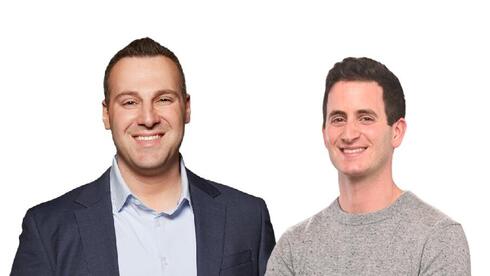
"Nobody is doing a secondary deal just because they read an article…Investors are a lot more picky now"
Elephant CEO Chaim Schiff joined CTech to discuss secondary markets and how private companies can benefit from them
“I think that in general, 2020-2021 were crazy years, people were selling common shares at a premium of the last round of preferred shares with no data. Now, nobody is doing a secondary deal without any data just because you read an article in the news,” said Chaim Schiff, CEO of secondary market platform Elephant. “Investors are a lot more picky now, there are a lot more opportunities in front of them. Now if you want to get a deal done, it’s not enough that the offer you’re presenting is a good company and the price is good, you also need to beat out 10 other investment opportunities the investor has.”
Schiff is the CEO of Elephant, a secondary market platform that helps potential sellers meet with potential investors and shares of private tech companies, usually in the late-stage growth phases. Elephant is Israeli-owned but considers itself a global platform and most of the activity it sees is from American companies. “Most of the deal flow on our marketplace is US-based companies and our clients are mainly from Europe, so the [Israeli] judicial reforms are not really a factor on our platform. We are still seeing interest in Israeli companies, no question about it,” he says.
The secondary market is where investors buy and sell securities from other investors. For example, someone who might want to buy stock at a company like Tesla or Apple would buy the stock on the stock market from investors who already own the stock rather than from the company itself. Typically, people buying stocks in secondary deals do so at a discount (usually at roughly 20-40% less) to make up for the information gaps compared to primary markets - where securities are created and new stocks and bonds are sold to the public.
“The secondary role has grown and it is more sophisticated every year, there are more analysis tools that you can use,” Schiff continued. “I think in the long run, the secondary is going to keep on growing not just because of size and volume of transactions, but also in capabilities.”
Today, Elephant has a portfolio of late-stage private companies whose shares are held by private shareholders and listed on its platform. These include Israeli companies like Cheq, StoreDot, BigID, and Trax, as well as others from around the world. Elephant has three arms to it: one is the brokerage arm which helps facilitate deals between buyers and sellers, it also has an arm dedicated to funds, and its third arm - Elephant Research - supports them both by trying to bring as much data and input into the process to help complete these deals.
“Companies are becoming a lot more open to secondaries. In the U.S., most of our activity is U.S. companies and cash investors,” he said. “I do think that from a company’s perspective, they should not be afraid of secondaries, but rather take advantage of the benefits they can get from it.” According to Schiff, Elephant helps them with what they call liquidity programs. The idea is that as a private company, they might face problems such as the retention of talent when going up against public companies. With Elephant, a liquidity program is led by the company which can control the pricing so they don’t get to the point where shares are being traded at a valuation that harms the company. “They gain new blood into their system, getting some players for the next primary round of financing.”
Schiff shared that the secondary market is becoming more common, with a rise in demand for these kinds of deals. “There are a lot of benefits to secondaries and I think we are seeing companies understand more as they become exposed to it when they did primary with secondary, but then the secondary came as a side effect to the primary,” he concluded. “Secondaries are not going to replace the public market, but it's going to grow and be something that is complementary to it and very beneficial under the right circumstances.”















